Does ureteral obstruction cause renal infarcts in cats?
Renal infarcts in cats are common incidental findings on abdominal ultrasonography in cats. Hickey and others (2014) reviewed disease associations in cats with renal infarcts diagnosed on ultrasonography or necropsy.
http://www.ncbi.nlm.nih.gov/pubmed/24528199
A significant association with cardiomyopathy was observed.
However, that doesn’t explain for me why so many cats have apparent infarcts. Certainly in our population the overwhelming majority of such patients don’t have any cardiac changes.
Now look at these kidneys…..
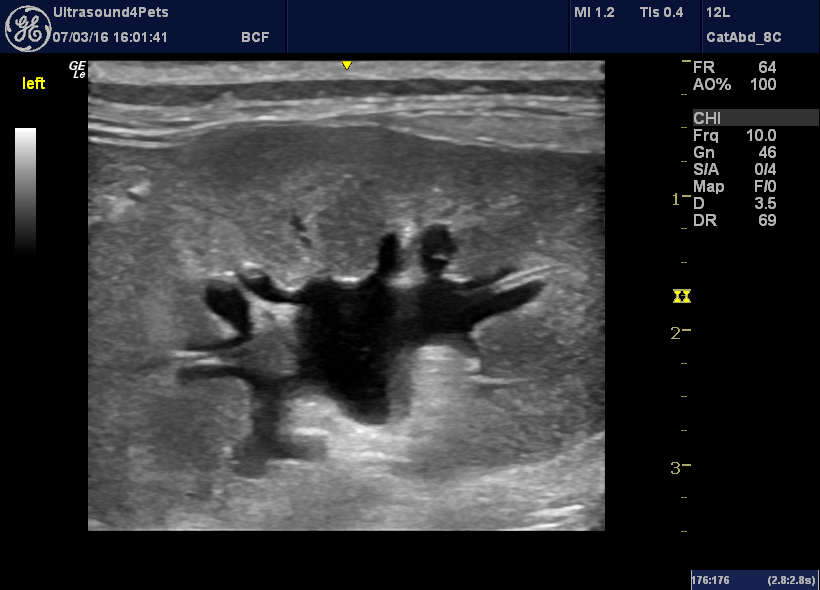
Left kidney with changes consistent with acute ureteral obstruction
This is a cat with classic ‘big-kidney, little-kidney’ presentation. This is the big one demonstrating pyelectasia. There are multiple calculi in the left ureter:
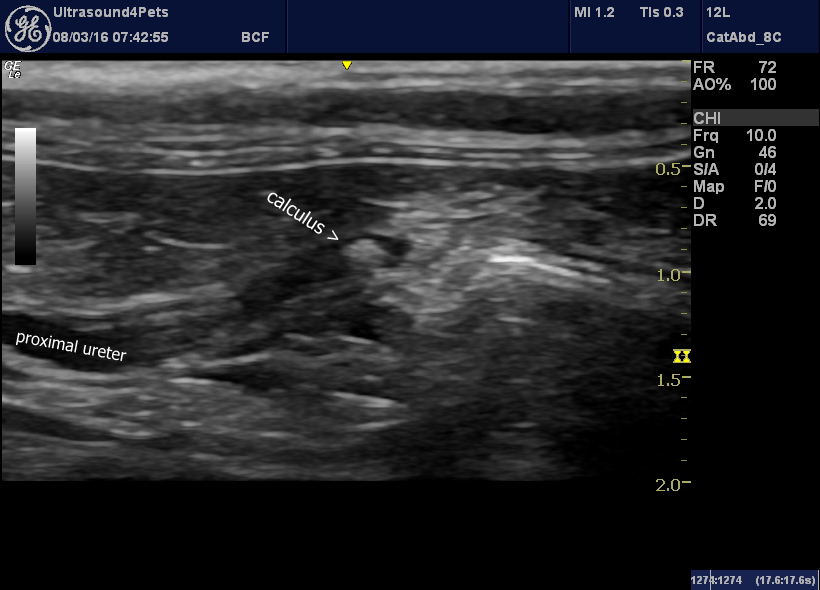
One in mid-ureter.
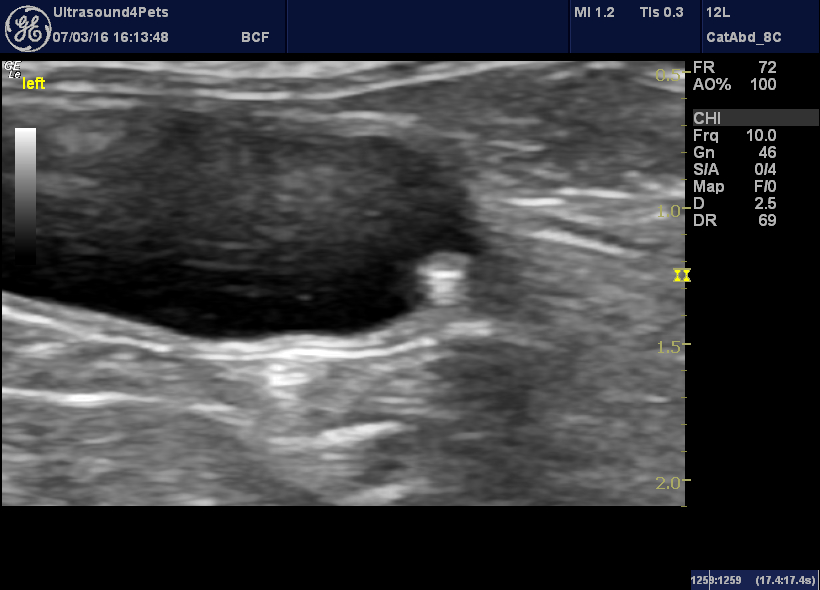
…and one in the terminal ureter at the bladder neck.
There’s a lot of inflammation around the left kidney and a small retroperitoneal effusion which also suggest that this kidney is acutely obstructed.
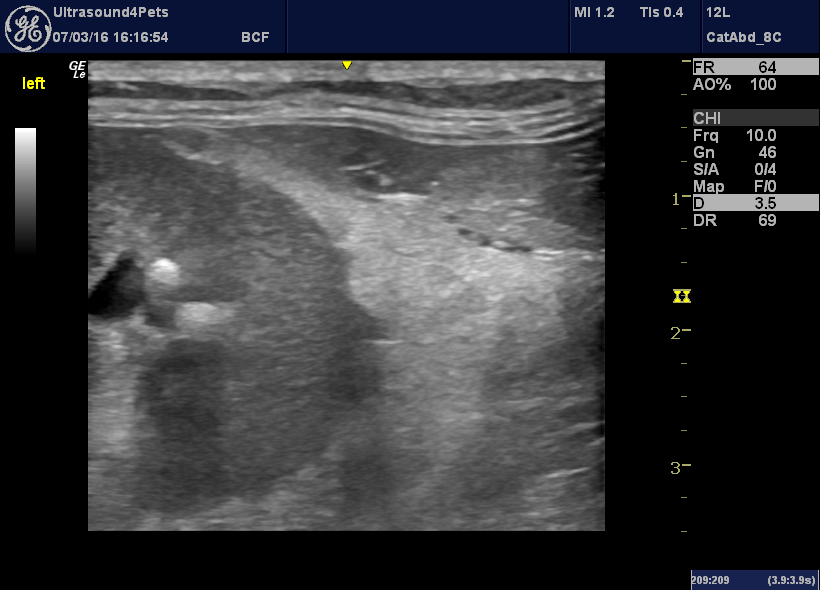
peri-renal inflamed fat
OK, so now the right kidney…
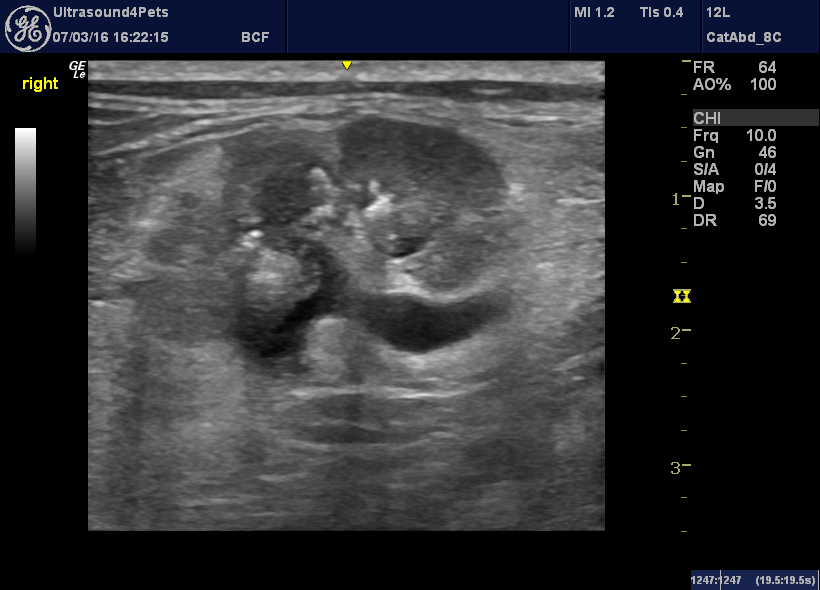
It’s small, it has focal mineralisation and it has discrete, ‘sunken’, hyperechoic wedge-shaped cortical lesions with the characteristic appearance of infarcts.
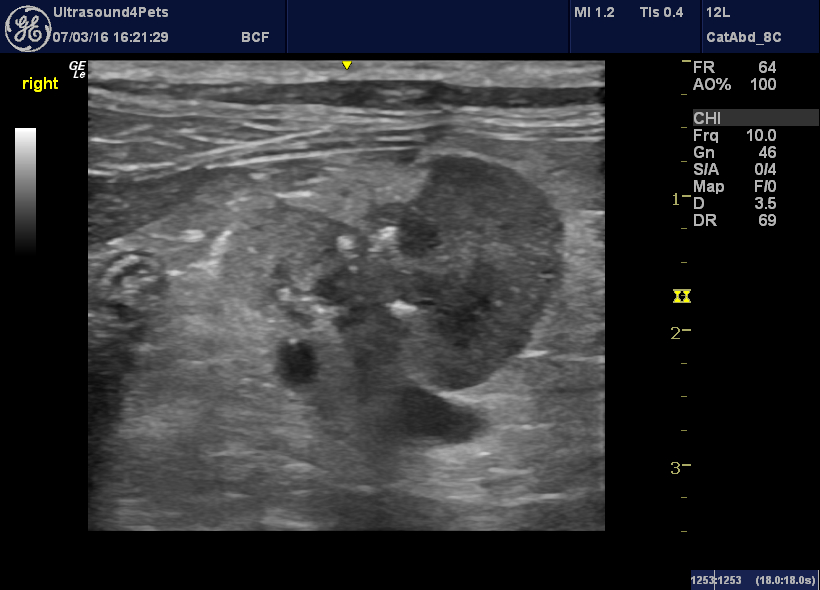
And unsurprisingly, the right ureter also is obstructed by a calculus:
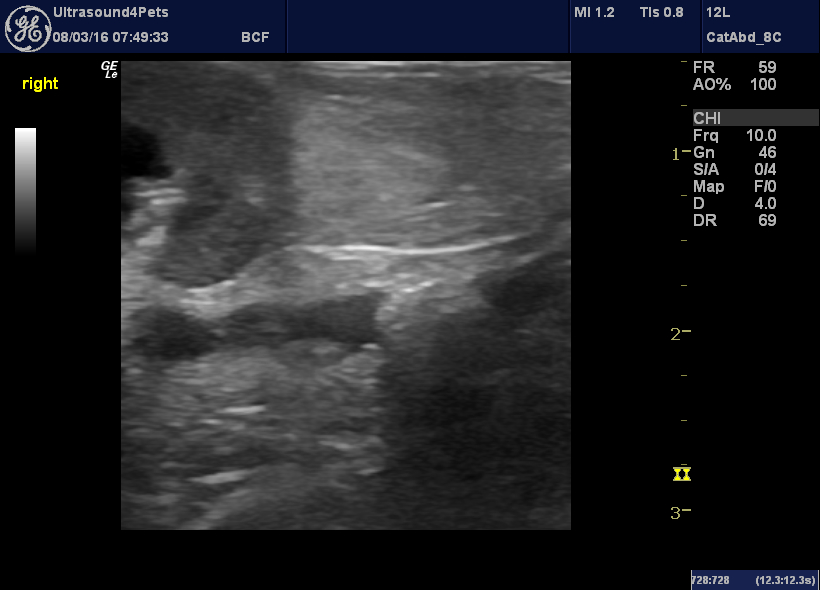
In my experience, this is typical of the appearance of kidneys with chronic ureteral obstruction.
This is another one:
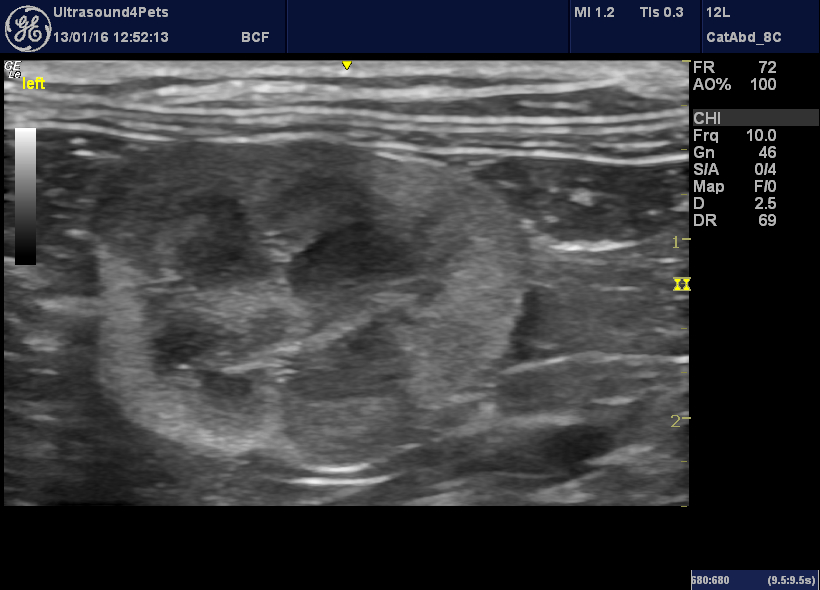
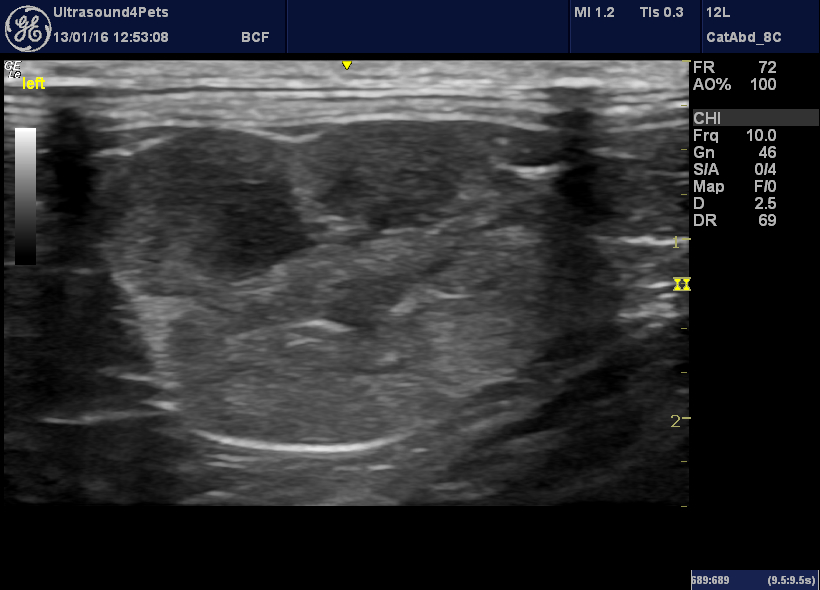
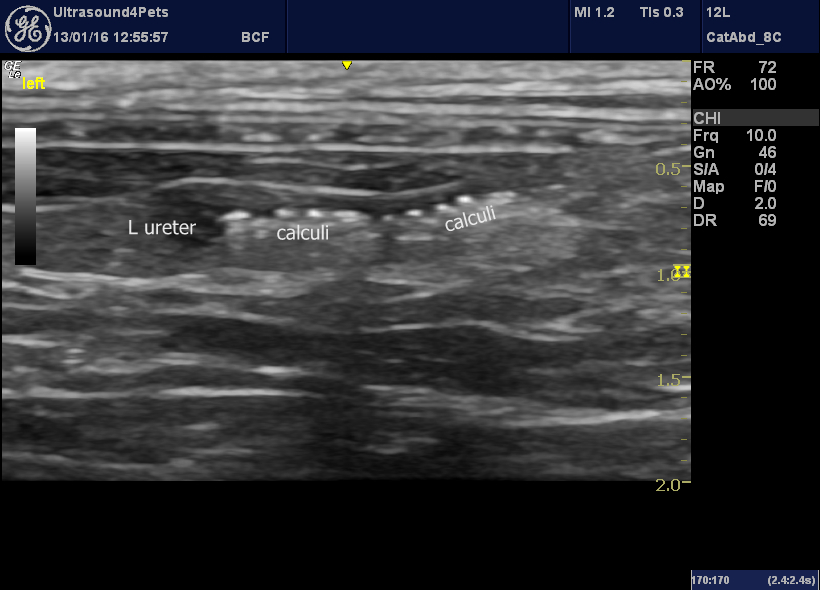
I’ve not seen this written up anywhere but I wonder if some renal infarcts are due to unrecognised ureteral obstruction. Should be easy enough to test the hypothesis.






I have seen both cats with HCM and concurrent renal infarction changes as well as cats without HCM so there is definitely some other factors that could contribute to renal infarction and uteroliths may be one of them.
I have read in other studies that renal infarcts may be associated with pancreatitis without overt cardiac disease. The authors state that given the extent of pancreatic and renal microcirculation, sustained hypercoagulability secondary to chronic pancreatitis in cats may result in thromboembolic events leading to renal infarction.
In cases of HCM, we know from other studies that cats are at higher risk of thromboembolic events. Therefore, my hypothesis is if the cats have an underlying condition that could put a cat in a long standing hypercoagulable state, it could lead to renal infarction.
Also in protein losing nephropathy, lower-molecular-weight proteins such as ATIII are lost in the urine, and this leads to hypercoagulability so cats with proteinuric CKD may theoretically be at risk of renal infarction.
I am not sure if uterolithiasis leading to secondary post renal obstruction leads to subsequent renal dysfunction that leads to protein loss such as ATlll in urine and predispose to renal infarction.
Yes, I completely agree with all of that and and the pancreatitis idea is really interesting. I’ll chase that up. Overall, a few years on, I still have a very strong impression of an association between ureteral calculi and renal infarction. However, as is always the way with these things, I’m probably seeing a particular subset of cases in our workload.